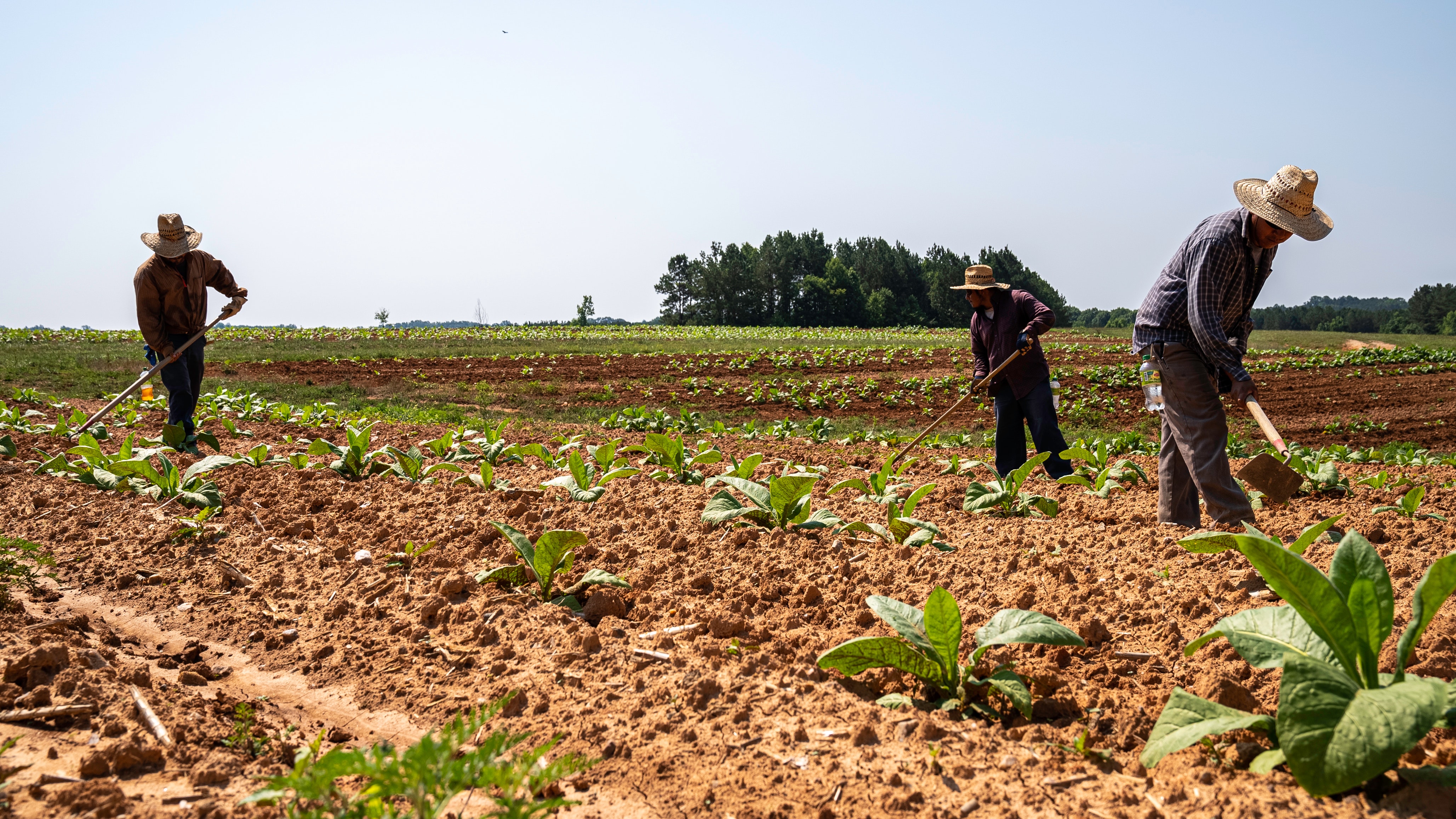Luca Greco is a law student in the HLS Food Law & Policy Clinic and a guest contributor to this blog.
Due to racist exclusions at the time of their passage, the many New Deal labor and employment protections that cover nearly every industry have long excluded farmworkers from their essential protections. Given that the agricultural workforce is now predominately comprised of Hispanic workers, the lack of such protections and resulting harms implicates concerns of racial and ethnic justice.
Due to the exclusion from many workplace protections, farmworkers are vulnerable to the dangerous working conditions in modern agriculture. The harms for workers in crop production include injuries from pesticides such as acute pesticide poisoning, harm to the fetuses of pregnant workers, neurological deterioration, kidney disease, and cancer. In the fields, farmworkers are also subjected to extreme heat that places them in danger of kidney damage, heat stroke, and other injuries, with the risk increasing as temperatures rise due to climate change. Livestock workers in CAFOs are exposed to toxic fumes, microorganisms, and particulate matter that can cause difficulty breathing, liver and kidney damage, and cancer.
For this dangerous work, farmworkers earn a fraction of the wage that comparable production workers receive in other industries, an issue worsened by wages rising more slowly in agriculture than other industries. This disparity is driven by limitations on overtime and minimum wage protections, wage depression by the H-2A program, and lack of rights to organize and demand higher wages due to exclusion from the National Labor Relations Act.
Around the country there has been growing momentum to expand labor and employment protections for farmworkers to address the injustices of the exclusion from federal protections. The 2023 Farm Bill can harness this wave of farmworker power to secure federal legislation dedicated to redressing the harms caused by existing policies. Farmworkers have won the right to organize and seen expansion of labor rights, secured workplace safety protections, and obtained overtime pay in several states, successes that Congress can draw upon going forward.
Labor Organizing Protections
New York farmworkers obtained a major victory in 2019 when the Farm Laborers Fair Labor Practices Act was enacted. This law extended a wide range of labor and employment protections to New York farmworkers by classifying them as employees under state law, granting them the rights to organize and bargain, requiring overtime pay after 60 hours per week of work, obligating employers to provide a 24-hour rest period each week, and more. These extensive protections represent a significant expansion of rights to New York farmworkers including the federal protections that farmworkers around the country still lack.
California recently passed legislation easing the burden on workers in organizing by allowing mail-in voting for union elections. The victory came after fierce organizing and demonstrations, and pressure from the Biden administration, convinced Governor Gavin Newsom to finally sign the law. Organizing farmworkers now face an easier path to obtaining a union majority, with United Farm Workers (UFW) suggesting that mail in voting will limit the ability of employers to intimidate farmworkers through the election process. Pushback from industry has led to concessions from UFW and the California Labor Department to slow the use of card checks in the next few years, but this represents a significant win for workers.
Worker Safety
Some states have also taken action to protect farmworkers against the dangers of excessive heat and wildfires, threats that have been growing due to climate change. While federal action is lacking, 21 states administer their own state level occupational safety agencies and some have instituted regulatory protections for workers in danger from record temperatures and increased smoke exposure from wildfires. Following the death of a farmworker in 2021, advocates in Oregon pushed for a new heat illness prevention standard, which the state enacted in May 2022. The rule requires employers to implement safety protocols, including providing workers with shade, breaks, and drinking water, creating and implementing heat illness preventions plans, providing employee training, and new limitations on smoke exposure. These safety requirements represent a necessary but incomplete first step forward in protecting farmworkers from their dangerous working conditions.
Overtime Pay
In September 2022, a New York wage board voted to reduce the overtime threshold to 40 hours by 2032, building upon the 2019 labor protections that the state enacted. To ease the hit on struggling farmers, New York state is implementing the expanded overtime program with a new tax credit. This represents a move to bring farmworkers in line with other industries and tackles the agricultural exceptionalism that led to the exclusion of farmworkers from the basic overtime protections afforded workers in nearly every other industry. The momentum for expanding essential employment rights for workers has been growing around the country. Colorado, Washington, and Oregon are among the now eight states that have passed some form of overtime pay for farmworkers in recent years.
As states around the country reckon with the economic and health harms of the exclusion of farmworkers from labor and employment protections, Congress has an opportunity to harness the momentum in many states to address the challenges facing farmworkers in the 2023 Farm Bill and beyond. Proposed House Bills like the Fairness for Farmworkers Act, Farmworker Pesticide Safety Act, and Farm Workforce Modernization Act of 2021 represent efforts to address these issues, but Congress must go further to deliver justice for farmworkers.
The views and opinions expressed on the FBLE Blog are those of the authors and do not necessarily reflect the official policy or position of FBLE. While we review posts for accuracy, we cannot guarantee the reliability and completeness of any legal analysis presented; posts on this Blog do not constitute legal advice. If you discover an error, please reach out to contact@farmbilllaw.org.


